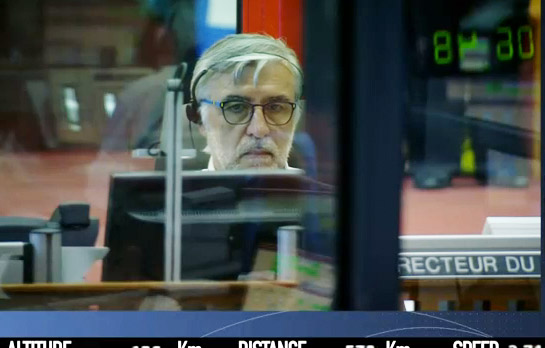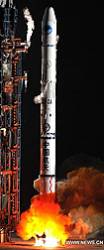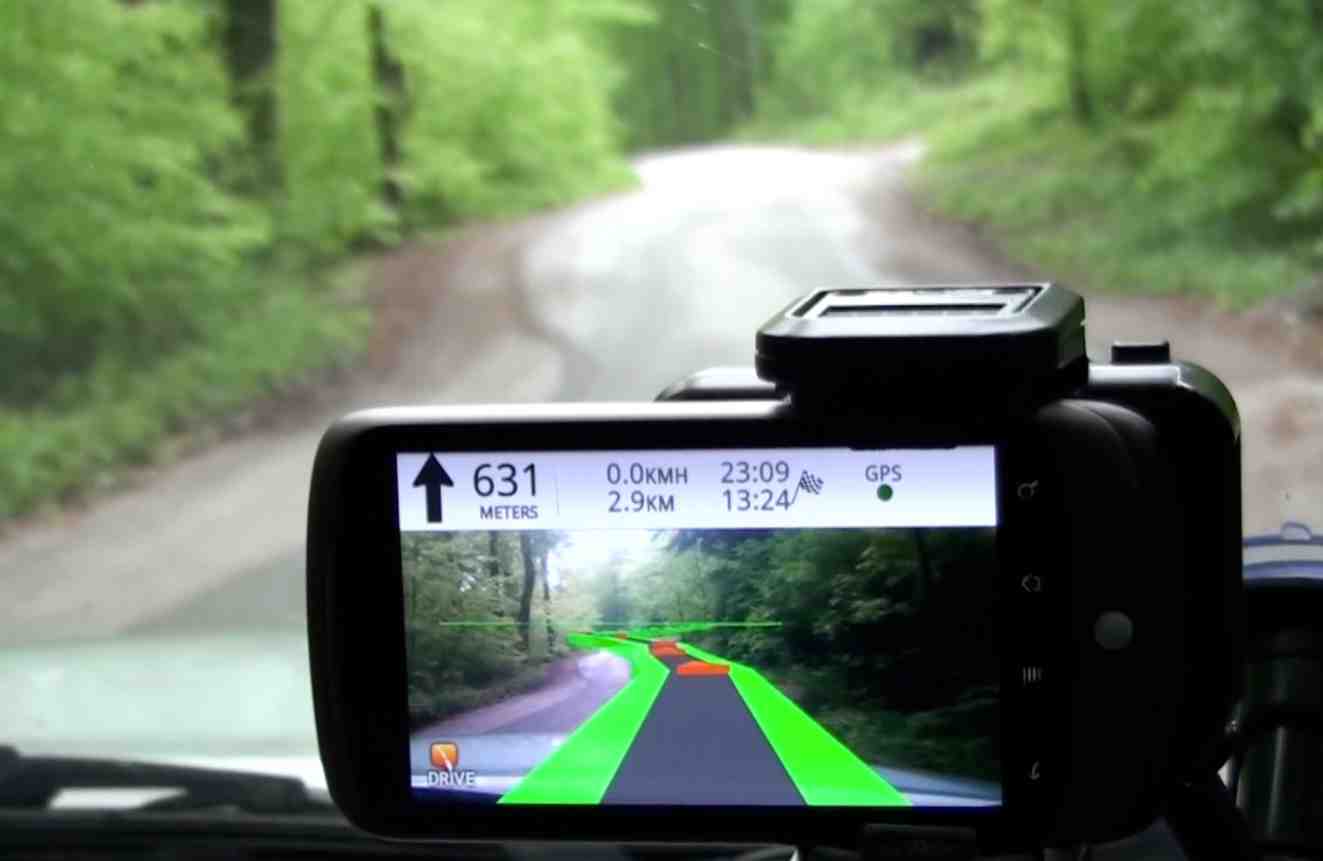 Didier Faivre, director of the Guiana Space Center, overseeing launch of four Galileo satellites. Screen capture of launch video by European Space Agency/ArianeSpace.
Didier Faivre, director of the Guiana Space Center, overseeing launch of four Galileo satellites. Screen capture of launch video by European Space Agency/ArianeSpace.A modified Ariane 5 rocket lifted four Galileo satellites into orbit today (November 17, 2016) following an 8:06 a.m. (EST) launch from the European Space Center in Kourou, French Guiana.
The Galileo satellites reached their target altitude, after a "flawless release" from the new dispenser designed to handle four satellites, according to the European Space Agency (ESA). The dispenser released the first pair three hours and 25 minutes after liftoff, while the second separated 20 minutes later.
A modified Ariane 5 rocket lifted four Galileo satellites into orbit today (November 17, 2016) following an 8:06 a.m. (EST) launch from the European Space Center in Kourou, French Guiana.
The Galileo satellites reached their target altitude, after a "flawless release" from the new dispenser designed to handle four satellites, according to the European Space Agency (ESA). The dispenser released the first pair three hours and 25 minutes after liftoff, while the second separated 20 minutes later.
The target orbit of 22,900 kilometers is actually 300 kilometers below the Galileo constellation’s final working altitude. This will leave Ariane’s upper stage in a stable “graveyard orbit,” while the four Galileos maneuver themselves up to their final set height. Over the next few days, engineers will nudge the satellites into their final working orbits and begin tests to ensure they are ready to join the constellation.
This marks the first time that ESA has deployed four satellites simultaneously. Recent launches have carried only two spacecraft. Two further four-satellite Ariane 5 flights are planned for Galileo during the next two years, one each for the constellation’s remaining orbital planes.
The satellites already in orbit will allow the European Commission to declare the start of initial services, expected towards year’s end. The previous 14 satellites were launched two at a time using the Soyuz–Fregat rocket.
“Now that we can rely on the powerful Ariane 5, we can anticipate the quicker completion of Galileo deployment, permitting the system to enter full operation,” remarked Paul Verhoef, ESA’s Director for the Galileo Programme and Navigation-related Activities. The full system of 24 satellites plus spares is expected to be in place by 2020.
This quadruple launch presented several technical challenges, including operation of the new dispenser on the Arian 5 launcher and the need to establish control over four independent satellites almost simultaneously.
After the satellites separate, a combined team from ESA and France’s CNES space agency will take over, establishing control and shepherding them through their early orbits, lasting nine days for one pair and 13 days for the other.
Separation will mark the start of a set of critical activities and maneuvers to ensure the four are ready for handover to the Galileo Control Center in Oberpfaffenhofen, Germany, for the rest of their mission.
This includes ensuring that each satellite has opened its solar wings and are “power positive,” establishing a data link via a set of ground stations, conducting extensive health checks, and then switching the craft into a stable Earth-pointing mode, ready for subsequent maneuvers and the beginning of the transmission of navigation signals.
Completion of the current launch mission will increase the number of Galileo satellites in orbit to 18; however, only 9 of the current 14 space vehicles in orbit are transmitting healthy signals available to users, according to the European GNSS Service Center.
The Galileo program is funded and owned by the European Union (EU). The European Commission has the overall responsibility for the program, managing and overseeing the implementation of all activities.
Galileo’s deployment, the design and development of the new generation of systems, and the technical development of infrastructure are entrusted to ESA. The definition, development and in-orbit validation phases were carried out by ESA, and co-funded by ESA and the European Commission.
The European Global Navigation Satellite System Agency (GSA) is ensuring the uptake and security of Galileo. Galileo operations and provision of services will be entrusted to the GSA from 2017.





